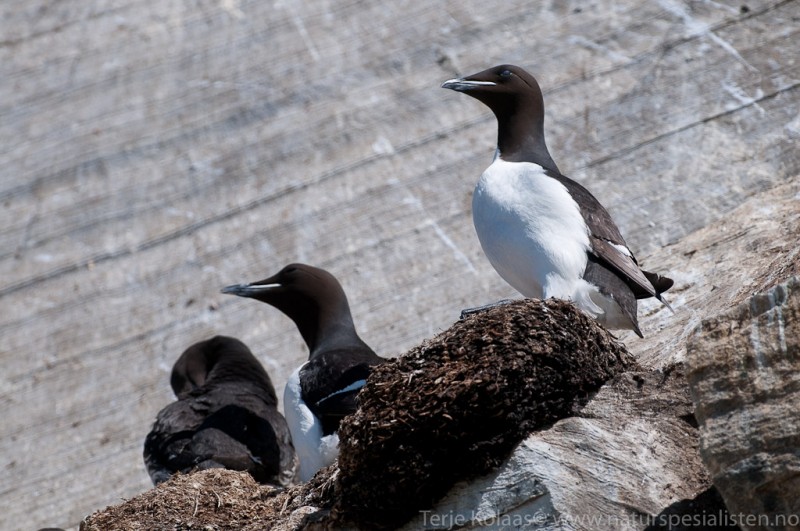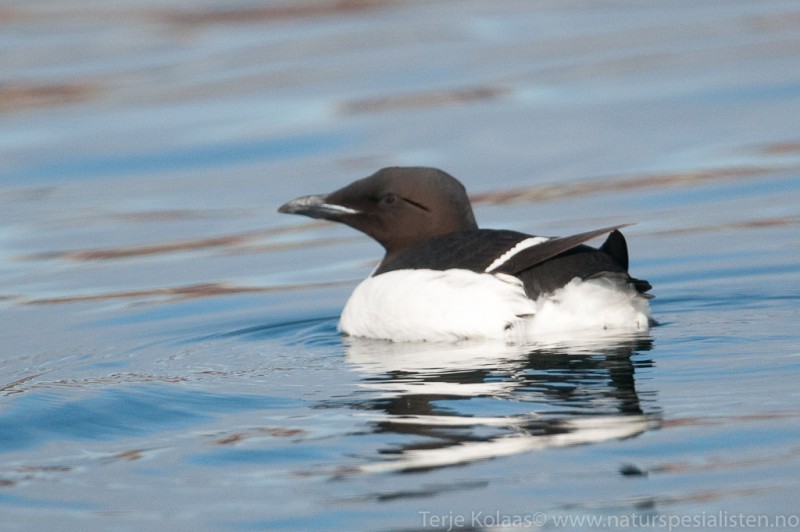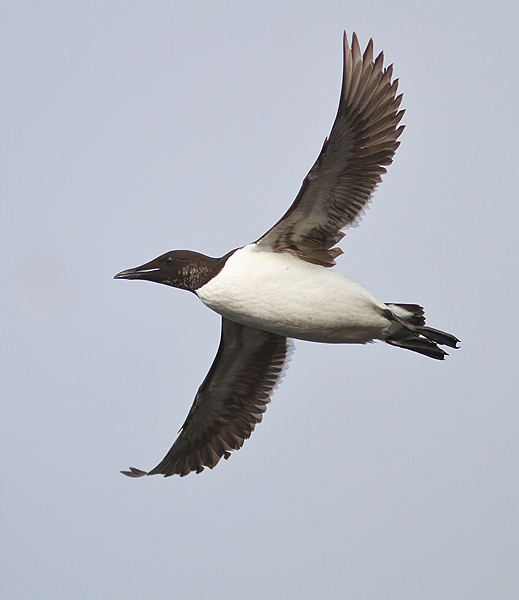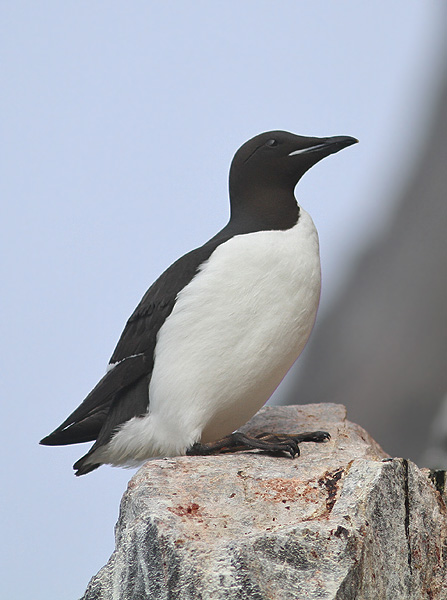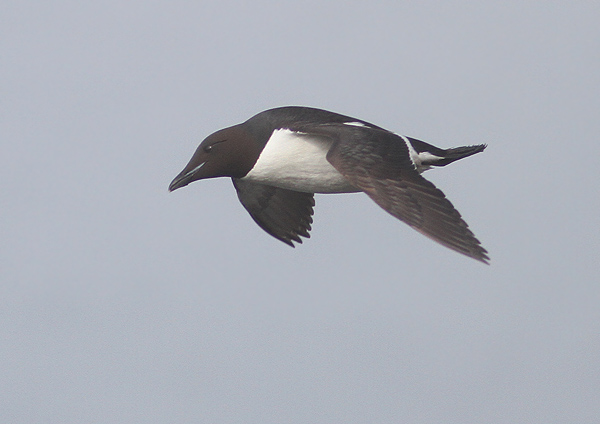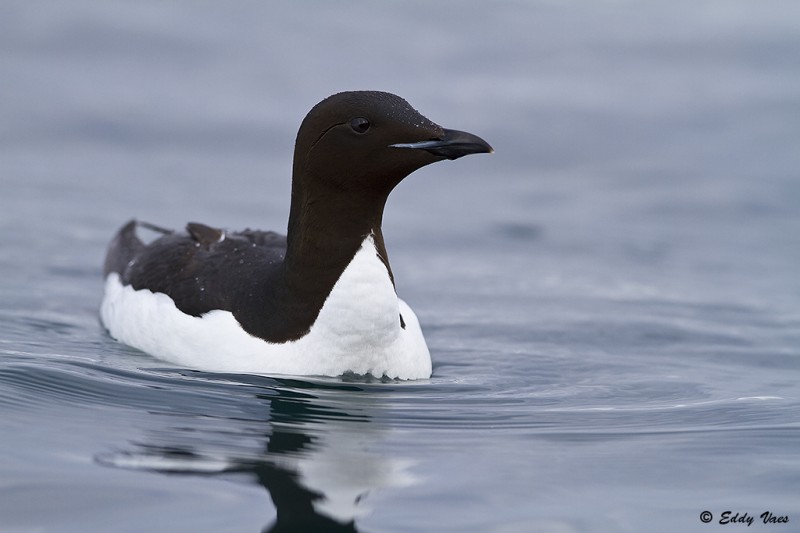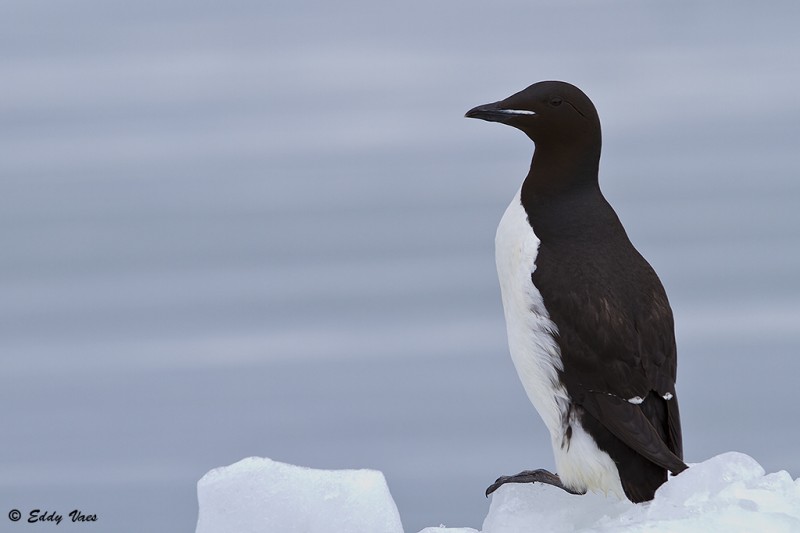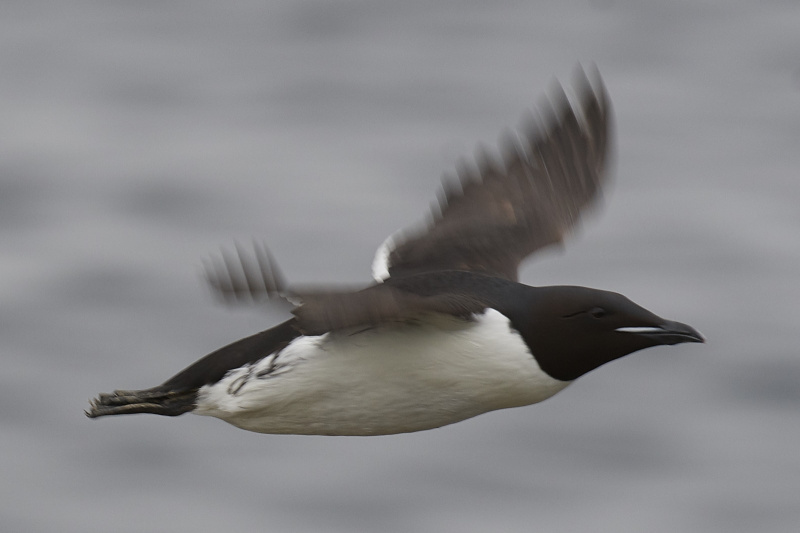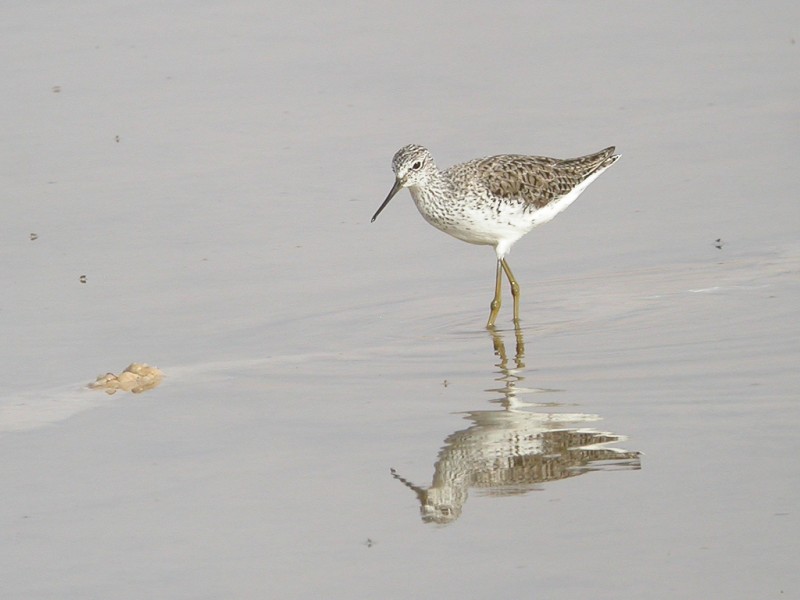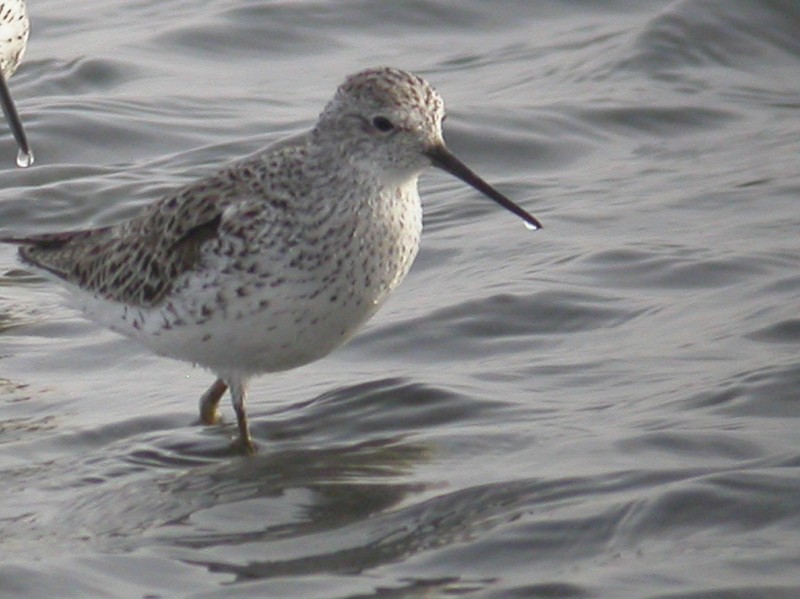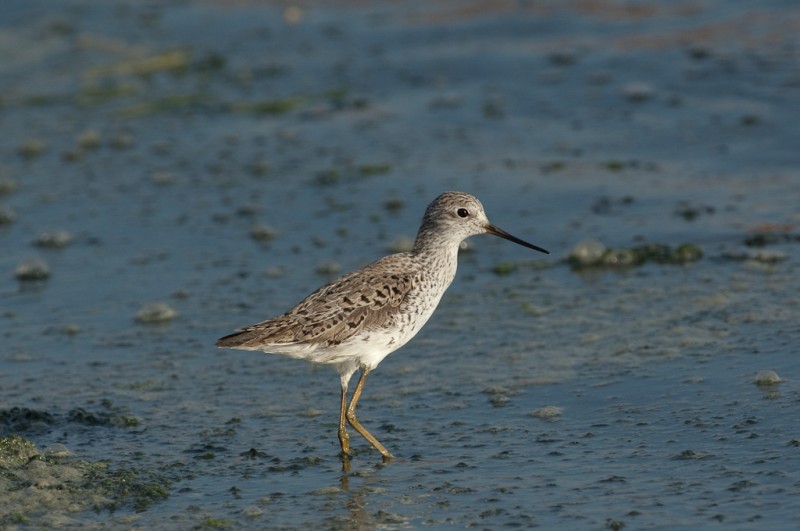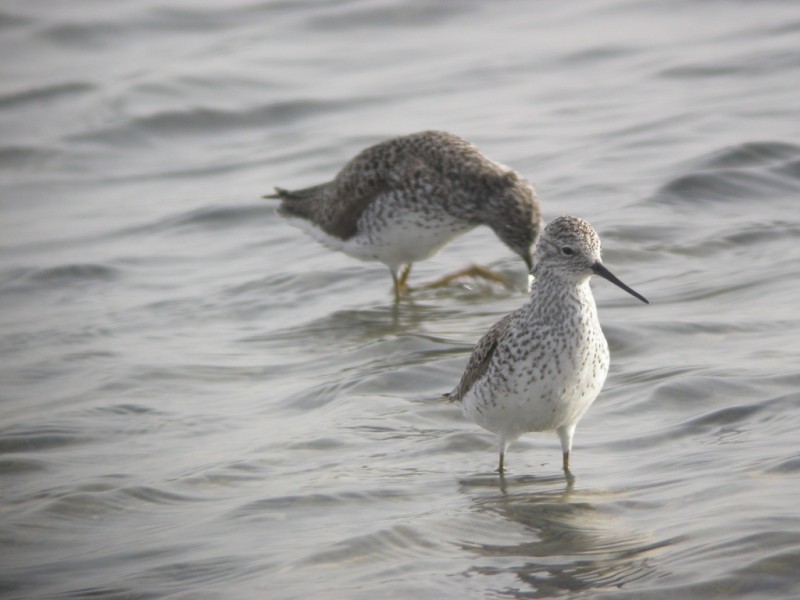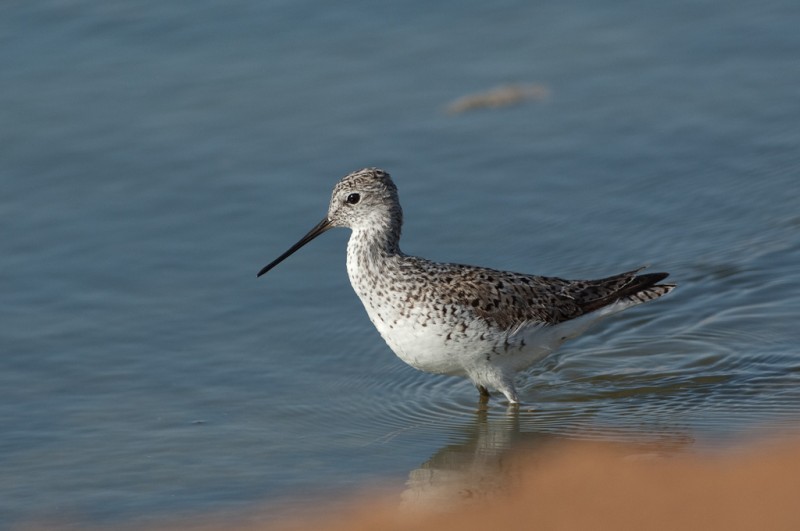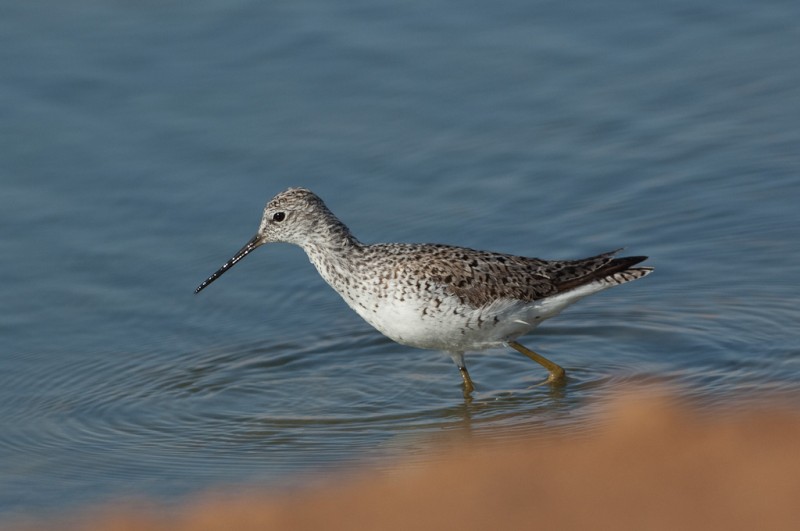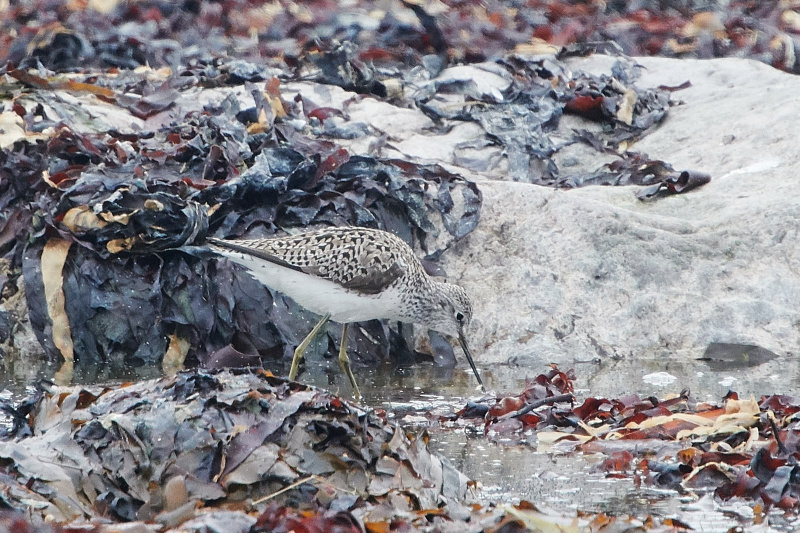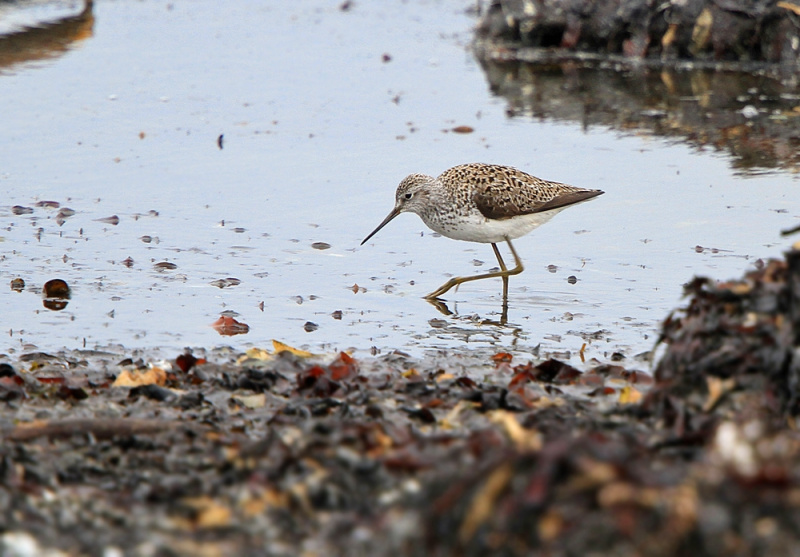Brünnich's Guillemot (Uria lomvia)
Marsh Sandpiper (Tringa stagnatilis)
Hard to distinguish from Guillemot, especially at a distance. Bill heavier, shorter, less pointed and with lateral white stripe at base (not obvious at a distance). Flanks lacks Guillemot's streaking, and armpits are white. Upperparts blacker, without brownish tones. Tail shorter than razorbill, with protruding feet in flight. Only lower cheeks white in winter, with the area behind the eye being black (white in both Guillemot and Razorbill). Pointed (not rounded) white wedge protruding from front of chest to lower throat. Neck, head and bill, heavier than in Guillemot, but more slender than Razorbill. Bill often tilted downwards in flight.
Sound:Coarse and deep voice, like a cross between Guillemot and Razorbill. Coarser than Guillemot but with the same laughing ending, but slower.
Contact call:
Distribution:
Wikipedia: map (se also Xeno-canto below)
Ecology:Birdlife ecology
Links:
Observation.org Latest observations
Image search Flickr NB! May give other species
CCCC-sounds:,www.xeno-canto.org,Andrew Spencer,http://creativecommons.org/licenses/by-nc-sa/3.0/
Small, but tall and elegant Tringa. Body the size of Wood Sandpiper, but stands as tall as Greenshank. Tibia especially long. The needle-like, straight bill adds to the elegance. Pale face, especially at base of bill. Back grey in adults, with star-shaped speckles in summer and narrow, pale fringes in winter. Immatures with broader fringes and overall darker upperparts. In flight the long legs trails far behind the tail, and the narrow white wedge on the back is conspicuous. Wings are dark with no bars, and shows as the darkest part of the bird also when on ground (especially in adults). Surprisingly quick and easy take-off. Posture generally erect and tall, particularly when nervous.
Sound:Song a slow, melancholic whistle "tu-lee-uu", with the middle part highest in pitch (and with falling glissando). Similar to Spotted Redshank in structure, but with a clear tone (little risk of confusion). Flight call/contact call similar to singular instances of alarm call of Redshank, consisting of a single note rising abruptly in pitch in a split second and then falling; "kieew". Lingers a bit at the ending of the note, giving it a clearer glissando than in Redshank.
Contact call:
Distribution:
Xeno-canto: map
Ecology:Birdlife ecology
Links:
Observation.org Latest observations
Image search Flickr NB! May give other species
CC
 English
English Albanian
Albanian
 Armenian
Armenian
 Bulgarian
Bulgarian
 Catalan
Catalan
 Croatian
Croatian
 Czech
Czech
 Danish
Danish
 Dutch
Dutch
 Finnish
Finnish
 French
French
 Georgian
Georgian
 German
German
 Greek
Greek
 Hungarian
Hungarian
 Italian
Italian
 Latvian
Latvian
 Lithuanian
Lithuanian
 Macedonian
Macedonian
 Norwegian
Norwegian
 Polish
Polish
 Portuguese
Portuguese
 Romanian
Romanian
 Russian
Russian
 Sami : Lule sami
Sami : Lule sami
 Sami : North sami
Sami : North sami
 Sami : South sami
Sami : South sami
 Scientific names
Scientific names
 Serbian
Serbian
 Spanish
Spanish
 Swedish
Swedish
 Ukrainian
Ukrainian


